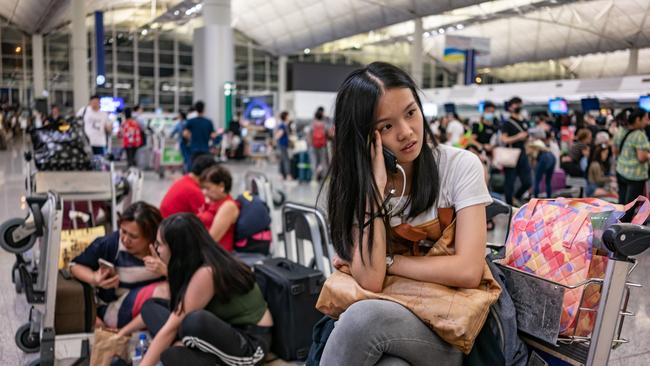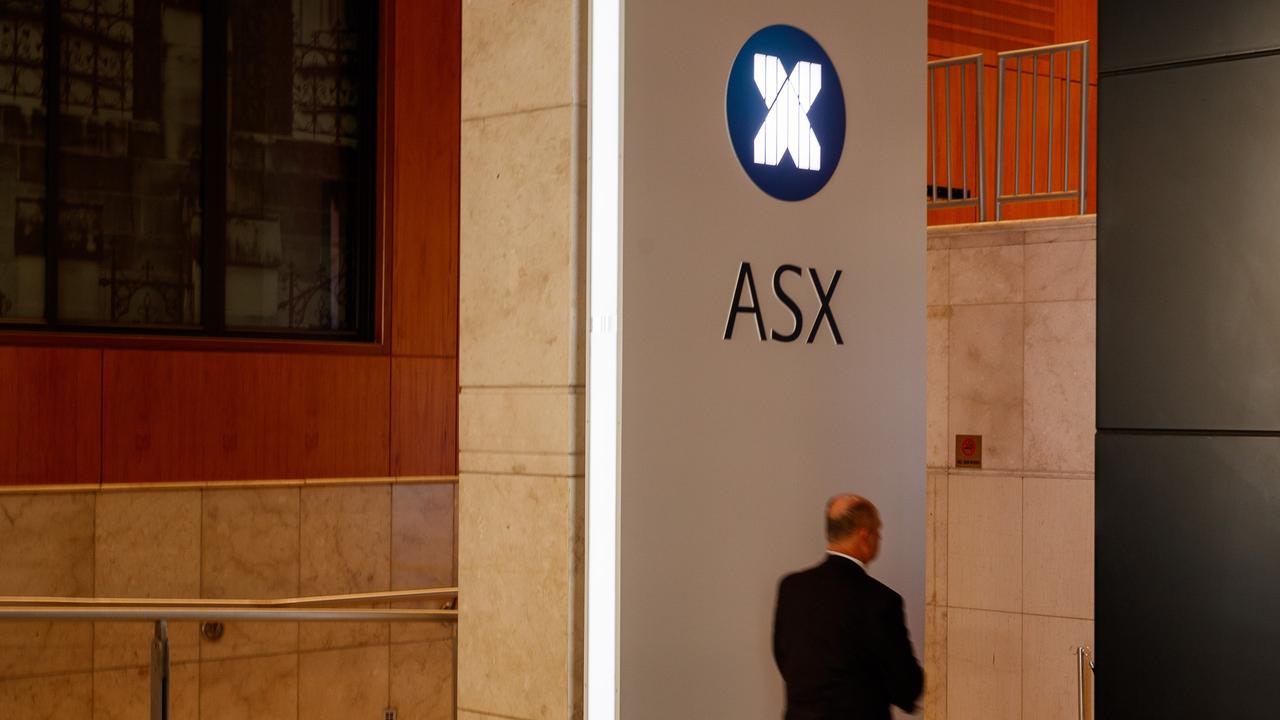Australian businesses make contingency plans as Hong Kong situation grows worse
Australian businesses are not exiting Hong Kong just yet, but many are planning for the worst.

Australian businesses in Hong Kong are now making contingency plans if the situation in the city gets worse as protests have blocked its international airport for the second day.
“The closure of the airport was highly disruptive, not only to business, but also for many families who were returning home for the resumption of the new school year,” the chief executive of the Australian Chamber of Commerce in Hong Kong, Jacinta Reddan told The Australian.
“The international business community and Australian businesses in Hong Kong have certainly been impacted.
“We’ve all been inundated with messages and calls from family and friends from around the world alarmed at the images they have seen on the news.
“Our members are concerned about the ongoing risk to business and of the impact on their staff, with many reporting a significant staff morale issue,” she said.
“Many businesses are undertaking contingency planning.”
Hong Kong is home to some 100,000 Australian passport holders, making it one of the biggest cities of expat Australians in the world after London.
Australian businesses operating in Hong Kong include all the major banks and Macquarie, Telstra, and representatives from law firms and other services industries.
Australians also work extensively in restaurants, hotels and hospitality in the city.
Ms Reddan said she was not aware of any member of the chamber who was specifically planning to leave Hong Kong as a direct result of the protests.
But she said the damage to Hong Kong’s international reputation from the protests of the past few months had been “significant.”
“It will make it harder for our businesses to attract staff internationally,” she said.
“Members in the hotel and retail sector, in particular, have been suffering a drop in business due to falling visitor numbers for some weeks but this impact now seems to be spreading to other sectors as the disruption and uncertainty continues.”
Australian companies were forced to implement contingency planning in 2003 during the outbreak of the deadly SARS epidemic. But the violent political protests, including the closure of Hong Kong airport by demonstrators this year, are raising questions about the city’s role as a global business centre and a gateway to doing business with China.
KPMG’s head of Asia, Doug Ferguson, told the Australian that the protests in Hong Kong, including this week’s closure of its airport, would see Australian business reassess plans to enter the market.
“The frustrations of the Hong Kong people have boiled over in a way most experienced Australian business people never expected, especially now with the airport being occupied and closed,” he said.
Mr Ferguson, who spent 10 years living in Beijing and Hong Kong before returning to Australia, said there was still a “watch and monitor mindset” among Australian expats in Hong Kong, rather than a mood of “panicking and pulling out.”
But he said any Australian companies which were considering expanding into Hong Kong would “definitely be reassessing timing, especially given the high fixed costs in Hong Kong for real estate.”
Mr Ferguson said the months of crisis in Hong Kong was already leading to a fall-off in demand for five star hotels in the city as tourists and business people were avoiding it out of fear of becoming involved in the protests.
“This isn’t just a local Chinese community crisis,” he said.
“The 5 star hotels haven’t been this quiet since SARS (in 2003),” he said.
“I am hearing some major international companies may look to relocate offices and jobs to places like Singapore.”
Mr Ferguson said he was afraid that the problems in the city were “not going to end anytime soon”.
“Business will have to carefully monitor, be aware of what employees are feeling and ride it out.”
He said Hong Kong had survived wars, health epidemics and community crises over the last century.
“Let’s hope peace and calm is restored soon,” he said.



